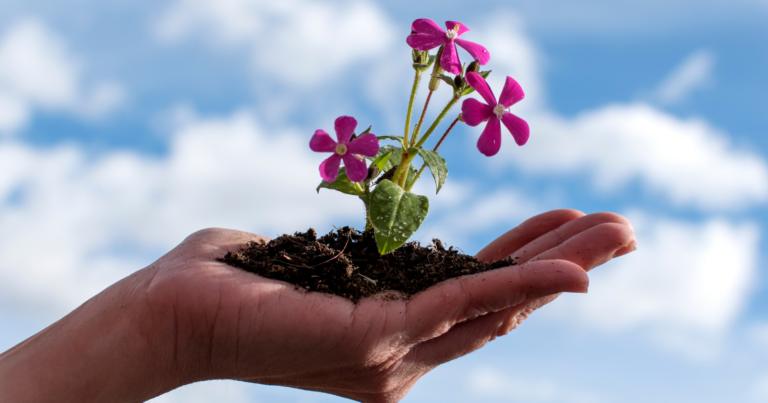There’s a clear distinction between being connected and being consumed by technology.
This difference lies in balance. Being consumed is when you can’t recall the last day you weren’t glued to a screen, oblivious to the world beyond notifications.
Being connected, however, is using technology as a tool, not a crutch. It’s knowing when to unplug and embrace the beauty of God’s creation in the world around us.
In this Christian perspective, we’ll explore the necessity of a digital detox. Because if you can’t remember the last day you went offline, well, it’s time to hit that ‘off’ button.
1) Digital overload
In today’s hyperconnected world, being constantly online has become the norm.
And it’s not just about work emails and calendar reminders. Social media, news alerts, instant messaging – they all demand our attention, creating a constant digital noise.
This constant connectivity can be overwhelming. It can make us feel anxious, stressed and disconnected from the real world. In worst cases, it can even lead to burnout.
This is where the concept of digital detox comes in.
A digital detox is a period of time during which a person refrains from using electronic devices. It’s about disconnecting from the digital world to reconnect with yourself and God.
As Christians, we believe in the importance of solitude and quiet time with God. In the modern digital age, this often means stepping away from our devices.
So if you’re finding it hard to remember the last day you went offline, it might be time for a digital detox.
But remember, it’s not about completely cutting out technology. It’s about finding a healthy balance.
2) Personal awakening
I remember a time when I felt like I was drowning in a sea of notifications, emails, and messages. The digital noise was deafening, and I could feel it taking a toll on my mental and spiritual well-being.
One day, I decided to take a step back. I turned off my devices, unplugged from the digital world, and spent the entire day in prayer and reflection.
The experience was transformative. It was like I had been given a chance to breathe, to reconnect with God, and to regain my focus.
There was a certain tranquility in the silence, a peace that surpassed all understanding. I felt more focused, more grounded, and more connected with God than I had in a long time.
That day served as an eye-opener for me. It made me realize how much the digital world had consumed me and how necessary it was to take regular breaks from it.
Since then, regular digital detoxes have been a part of my routine. They have helped me maintain a healthy balance between my online and offline lives and have greatly improved my spiritual well-being.
So if you’re feeling overwhelmed by your digital life, I encourage you to try it. Take a day, or even just a few hours, to disconnect from your devices and reconnect with God. You might be surprised at the impact it can have on your life.
3) The Sabbath principle
In the Bible, God commanded us to take one day off every week – a Sabbath. This day is meant to be a time of rest, a chance to recharge and reconnect with God.
Interestingly, this Biblical principle aligns with scientific research. Studies have shown that taking regular breaks from work – including digital work – can boost productivity, creativity, and overall well-being.
In our modern context, observing a Sabbath could mean taking a day off from our digital devices. Just as God rested on the seventh day, we too can take a day to rest from our digital activities.
By observing a digital Sabbath, we not only follow God’s commandment, but we also give ourselves the opportunity to rest and rejuvenate. This can lead to better focus, improved mental health, and a deeper connection with God and the people around us.
4) Seeking God in silence
In an era filled with constant digital noise, finding a quiet space to connect with God can be a challenge.
Social media notifications, emails, and instant messages have a way of interrupting our quiet moments, making it difficult to focus on prayer or Bible study.
Switching off our devices and choosing to spend time in silence can help us hear God’s voice more clearly. It’s in these quiet moments that we often feel God’s presence most strongly and receive guidance for our lives.
By intentionally creating a space for silence through a digital detox, we can deepen our relationship with God, gain more clarity, and experience peace in the midst of a chaotic world.
5) Mindful living
In today’s digital age, it’s easy to get caught up in the online world and lose sight of the present moment.
We’re often so busy scrolling through social media feeds or checking emails that we forget to pay attention to what’s happening around us. This can lead to feelings of disconnection and even loneliness.
A digital detox can help us break free from these digital distractions and live more mindfully. It’s an opportunity to be fully present in each moment, whether it’s a conversation with a loved one, a walk in the park, or a quiet time with God.
By choosing to live mindfully, we not only experience life more fully but also cultivate deeper relationships with God and those around us.
6) Cherishing relationships
In this digital era, it’s easy to let genuine human interaction slip through our fingers as we interact more and more through screens.
Perhaps you’ve experienced it too – a meal where everyone is engrossed in their phones, a conversation interrupted by a buzzing notification, a prayer time cut short because of an “urgent” email.
It’s heartbreaking to see how these precious moments are often stolen by our devices.
A digital detox is an opportunity to reclaim these moments. It’s about choosing to put down our devices and make real, meaningful connections with the people around us.
It’s about truly listening when someone talks, sharing laughter and tears, and being fully present in each moment.
And most importantly, it’s about nurturing our relationship with God – spending undisturbed time in His presence, free from the distractions of the digital world.
Because at the end of the day, these relationships – with God and with our loved ones – are what truly matter.
7) Realizing your worth
There was a time when I found myself constantly comparing my life to those I saw online. The perfect Instagram photos, the impressive LinkedIn profiles – they all made me feel less than.
I was trapped in a cycle of comparison and self-doubt, constantly questioning my worth based on what I saw on social media.
Deciding to undergo a digital detox was one of the best decisions I’ve made. It helped me break free from the toxic cycle of comparison and rediscover my true worth in God.
Away from the curated highlights of social media, I was reminded that my worth is not based on likes, shares, or comments. My worth is rooted in God’s love for me.
If you find yourself caught in this comparison trap, a digital detox can be a powerful way to break free. Remember, your value does not lie in online validation but in God’s love and affirmation.
8) Nurturing creativity
Our brains are not designed to be constantly inundated with digital information. This constant stream of information can leave us feeling mentally exhausted, leaving little room for creativity and inspiration.
A digital detox allows our minds to unwind, creating space for new ideas to flourish. Away from the noise of notifications and updates, we can tap into our innate creativity and imaginative spirit.
Whether it’s writing, painting, cooking, or simply daydreaming, a break from digital distractions can foster creativity and innovation. It’s an opportunity to explore new hobbies or revisit old ones, and perhaps even discover God-given talents you didn’t realize you had.
So if you’re feeling stuck in a creative rut, try unplugging from the digital world. You might be surprised at the creative potential that lies within you.
9) Prioritizing spiritual health
Perhaps the most crucial aspect to remember about a digital detox is its impact on our spiritual health.
In a world that never stops buzzing, finding time for prayer, meditation, and reflection can seem impossible. We often push these essential practices aside, drowned out by the noise of our digital lives.
But when we step back from our screens, we create space for God. We open up room to seek His face, hear His voice, and feel His presence.
In the quiet, away from the distractions of the world, we can find peace and center ourselves in God’s love. This is the heart of a digital detox: reorienting ourselves towards God amid a world that constantly pulls us away.
Remember that your relationship with God is more important than any email, notification or update. Your spiritual health is worth prioritizing. It’s worth taking the time to disconnect from the noise and reconnect with God.
Final reflections: A call to disconnect
As we navigate this digital age, it’s critical to remember our inherent need for balance and connection – not just to the internet, but to God, our loved ones, and ourselves.
The concept of a digital detox isn’t about demonizing technology or rejecting its benefits. It’s about acknowledging its potential to overtake our lives if we’re not conscious and intentional.
In the Bible, in Matthew 6:21, it says, “For where your treasure is, there your heart will be also.” If we’re honest with ourselves, where is our treasure? Is it in the number of likes on a post or the constant buzz of notifications? Or is it in our relationship with God and those around us?
A digital detox presents an opportunity to realign our priorities and treasure what truly matters. It’s a chance to disconnect from the noise and reconnect with God – to be still and know that He is God.
As you step away from this article and perhaps back into the digital world, consider this: when was the last day you went offline? If you can’t remember, maybe it’s time for a digital detox.











